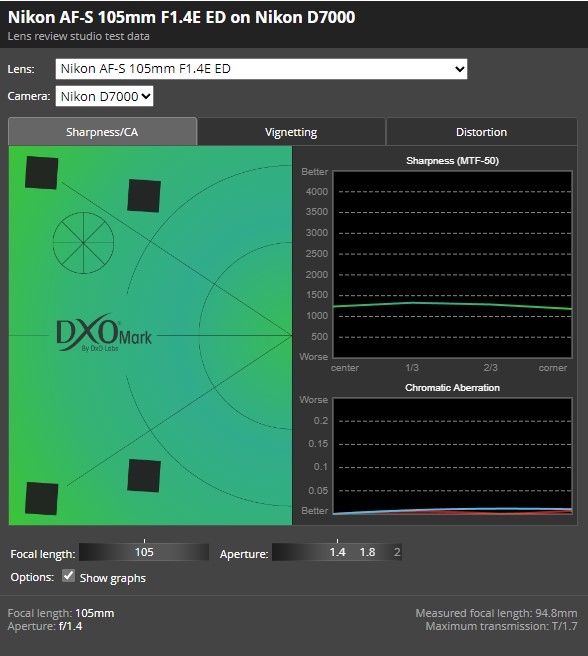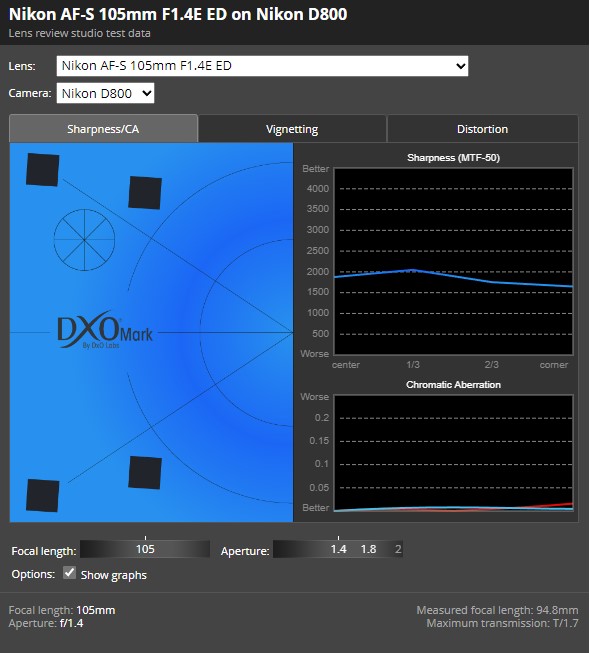Does matching FF lenses to FF cameras produce the best results?
Aug 8, 2023 07:25:21 #
whfowle
Loc: Tampa first, now Albuquerque
For years I have used FF lenses on my crop sensor cameras. Mainly because the FF lenses are a better quality than the brands crop sensor lenses and to get more reach when photographing auto racing. But I have always wondered if I am losing quality in the image but not using the intensity of the full cone of light coming to bear on the sensor. I understand that the "sweet spot" of a lens is in the center which is what is actually landing on the crop sensor, but am I not wasting some of the light that is produced by the lens but not landing on the sensor? Does a speed booster direct the full cone of light back onto the smaller sensor? By its name, it seems to imply that I will be getting more light on the sensor and therefore able to get an f stop gain.
Aug 8, 2023 07:47:36 #
Aug 8, 2023 07:50:44 #
With the speedbooster you do get a wider angle of view and more light intensity on the sensor. Yes you do gain f stop. But as far as sharpness I don't know but I think it won't be as sharp because there are additional optics in the speedbooster.
Aug 8, 2023 07:51:02 #
Ysarex
Loc: St. Louis
whfowle wrote:
For years I have used FF lenses on my crop sensor cameras. Mainly because the FF lenses are a better quality than the brands crop sensor lenses and to get more reach when photographing auto racing. But I have always wondered if I am losing quality in the image but not using the intensity of the full cone of light coming to bear on the sensor.
Exposure is defined as light per unit area. At the same f/stop you get the same exposure regardless of whether the lens is designed to cover only an APS sensor or a medium format sensor. Moving your FF lens to a FF camera won't get you a different exposure.
You gain some IQ advantage from FF by not cropping the image as much and because the larger area of the FF sensor collects more total light which reduces noise/extends DR.
whfowle wrote:
I understand that the "sweet spot" of a lens is in the center which is what is actually landing on the crop sensor, but am I not wasting some of the light that is produced by the lens but not landing on the sensor? Does a speed booster direct the full cone of light back onto the smaller sensor? By its name, it seems to imply that I will be getting more light on the sensor and therefore able to get an f stop gain.
Aug 8, 2023 07:56:16 #
Not something I, myself, would worry about in the slightest.
The <smaller> sensor area receiving what light it receives is the same amount of light that would hit the same area if the sensor were larger. Lumens per square mm of sensor is the same in either case given the same lens. It's simply capturing a smaller portion of the image that is available. That's why it appears to be like a telephoto. In camera cropping.
The <smaller> sensor area receiving what light it receives is the same amount of light that would hit the same area if the sensor were larger. Lumens per square mm of sensor is the same in either case given the same lens. It's simply capturing a smaller portion of the image that is available. That's why it appears to be like a telephoto. In camera cropping.
Aug 8, 2023 07:57:53 #
whfowle wrote:
For years I have used FF lenses on my crop sensor ... (show quote)
You're paying more for a larger & heavier lens than you need for a cropped sensor body. It's up to you and your wallet and arm whether that FF lens is a better choice than the corresponding (if available) DX-style lens.
Aug 8, 2023 08:31:28 #
whfowle
Loc: Tampa first, now Albuquerque
CHG_CANON wrote:
You're paying more for a larger & heavier lens than you need for a cropped sensor body. It's up to you and your wallet and arm whether that FF lens is a better choice than the corresponding (if available) DX-style lens.
I was looking at this issue from a technical point of view rather than a cost, weight/size view. Over the years, I have used all formats and I notice that when the lens matches the sensor, I see a better image quality. Examples for me are Fujifilm cameras and lens and MFT cameras and lenses. When I look at Nikon where I am using a DX D500 and a FX 200-500 f5.6, the quality is not as good as when I put the 200-500 on a D5. Granted, the quality of the D5 and the sensor size are factors here but I am amazed by how much better the quality of the Fujifilm and Olympus/Panasonic Lumix images compared to the Nikon D500 or D7200 images when using the FX lenses. Perhaps I am just discounting the gains from using the full frame Nikons but I do think Canon and Nikon do not put as much effort into producing the highest quality crop sensor lenses as Fujifilm and the MFT's companies do since that is all they produce.
Aug 8, 2023 09:26:55 #
billnikon
Loc: Pennsylvania/Ohio/Florida/Maui/Oregon/Vermont
whfowle wrote:
For years I have used FF lenses on my crop sensor ... (show quote)
The differences come down to the experience, skill, and knowledge of the photographer rather than the lens used.
Aug 8, 2023 09:38:01 #
Matched lens for format is usually best.
It's all about the engineering...ignore at your own loss.
It's all about the engineering...ignore at your own loss.
Aug 8, 2023 09:40:38 #
whfowle wrote:
I have always wondered if I am losing quality in the image but not using the intensity of the full cone of light coming to bear on the sensor. I understand that the "sweet spot" of a lens is in the center which is what is actually landing on the crop sensor…
You will be using the best part of the image circle but a Dx crop needs 1.5x as much enlargement. That means that the lens is actually 2/3 as sharp as it would be on an Fx camera.
You are better off with a Dx lens on a Dx body.
Aug 8, 2023 09:44:40 #
larryepage
Loc: North Texas area
whfowle wrote:
I was looking at this issue from a technical point... (show quote)
My road in digital photography has some parallels to yours. I started shooting with a Hawkeye Brownie 620 when I was about 7 years old, then moved through several different 3mm cameras as my dad progressed through his photography addiction. My first experience with digital was when I bought a Nikon CoolPix P3 at work to help create documentation for training and troubleshooting. That led to my first DSLR, a Fuji S3Pro in 2005, then quickly to a Nikon D200 a year or so later. After probably 11 years, the D200 became a used D300s when I retired, then a D810, D850, and D500.
Now, let's talk about lenses. I bought a Nikkor 18-70mm DX zoom with the S3Pro. (Fuji DSLRs used Nikon F-Mount lenses then.) It served OK with that 6 MP camera. But when I moved to the D200, I began to notice that almost all my photographs looked like they were out of focus. A little bit of checking showed that the problem wasn't a focus problem. Everything at every distance was fuzzy. And sometimes one side of the image was worse than the other side. Now...I am not a stickler for perfectly sharp images, but this was a real problem. I went to my camera store for a solution and came away with the Nikkor 17-55mm f/2.8 DX zoom. Wow. What a difference. Immediately. And of f course, for the price difference, my expectation wasn't too much too out of line with what I was seeing. The penalty, though, was that now I was shooting with a larger, much heavier lens.
Over time, I became interested in adding some other lenses...different focal lengths, different capabilities. But I wanted lenses that performed like that 17-5mm, not like the original 18-70mm. As an engineer, I also appreciated the much, much better build quality of that professional grade lens. What I quickly discovered was that the 17-55 was the only professional grade DX lens offered by Nikon. They already knew that their future was in full frame cameras, I suspect, so that's where their development and manufacturing dollars were directed, beginning a long time ago. And even the lenses that weren't considered as official "Gold Ring" professional lenses were far superior to any of their DX products. The 300mm f/4 is a very nice lens at a very attractive price, and the 'little' 180mm f/2.8 AF-D is a hidden gem that I'll never part with. And I'll guarantee that there is nothing else that comes close to the 70-200mm f/2.8 AF-S or its newer incarnations, certainly not in a DX lens.
There are some "doggy" full frame lenses, like the 18-35mm variable aperture AF-D zoom that I bought when I was going to do a night sky workshop. That lens has all sorts of problems when used on a full frame camera. But it is a great wide-normal zoom on a DX camera.
So bottom line, I believe that your observation about Nikon's focus on full frame lenses is largely correct. I think they decided a long time ago that their future was in full frame cameras and lenses. The F mount allows for use of full frame lenses on DX cameras with no penalties of any sort. My experience does not support a general statement that DX lenses provide better results than FX lenses on crop frame cameras. Other makers products may behave differently, but it would be difficult to understand how or why.
The question of the "speed booster" is a different question. Based on the physics of bringing more photons to impinge on the sensor at a given f/stop, it would increase the exposure, just like using extension tubes spreads the image out and reduces the exposure. But the question becomes, "how faithfully does it do that job?" My guess is that it is more gimmicky than useful.
Aug 8, 2023 09:49:41 #
whfowle wrote:
For years I have used FF lenses on my crop sensor ... (show quote)
> f/2.8 is f/2.8 light intensity (by calculation, anyway) whether the image circle covers full frame or APS-C or Micro 4/3 sensor area. You collect more VOLUME of light with a full frame lens, but the intensity at any point on the sensor is the same.
> A full frame lens used on a 24 MP FULL FRAME sensor will give you about one stop more dynamic range at the same aperture and ISO than any lens used on a 24 MP APS-C sensor (assuming the same sensor technology and processor technology is used in both cameras). That's because the sensels are bigger and soak up more photons due to their larger surface area. (A sensel is a monochrome sensor element covered with a primary color filter. Output from multiple sensels is combined to form a single file pixel.)
> Because you are magnifying the "sweet spot" of the lens by putting a full frame lens on a smaller format sensor body, absolute lens performance is reduced. However, you will see better center-to-edge and corner-to-corner uniformity of what sharpness you have.
> SpeedBoosters DO concentrate the full image circle of a full frame lens onto a smaller sensor, increasing BOTH light intensity and sharpness, while producing a wider angle of view than a simple adapter would provide. Micro 4/3 users have done this for years, to gain a stop to 1.33 stops of intensity while shortening the effective focal length by .71X to .64X, depending upon the model of SpeedBooster used.
However, in the case of Micro 4/3, there is no real benefit to using full frame lenses WITHOUT a SpeedBooster, other than the 2X increase in effective focal length. The best lenses designed for Micro 4/3 perform better on Micro 4/3 than the best full frame lenses adapted to Micro 4/3.
With APS-C, results vary, because there are excellent APS-C lenses and crappy APS-C kit lenses to sort through. A properly designed, high quality APS-C lens may outperform a full frame lens used on an APS-C body. That's just a matter of engineering and physics.
Whether any of this means anything to your photographic achievement is highly debatable and subject to the individual items chosen for comparison. We sit around on UHH and split hairs about performance, when really, the average viewer isn't likely to see a difference unless pixel-peeping a huge print from ten inches!
The short, snide answer to your question is no. Matching medium format lenses to medium format cameras produces better results. And matching 4x5 lenses to 4x5 cameras may produce even better results.
The true answer, as in all of photography and life, is, "It depends..."
Zack Arias has a proper perspective on this: https://youtu.be/PHYidejT3KY
Aug 8, 2023 10:34:58 #
For years I used a Canon 77D for hiking to save weight and cost. I never used a lens designed for crop frame on it. Canon nver produced much in the way of quality lenses for APS-C cameras. Most of the time, I used an EF 24-70 2.8L II. In good light, it was difficult to tell any IQ difference vs the 5D4 I had at the time. Longer focal lengths did present AF challenges. The biggest disadvantage is the cropping itself. The aforementioned 24-70 translates to 38-112 on the 77D so I gave up wide angle use. My 50mm becomes 80mm which made it far less useful. When mirrorless arrived, I bought the very light, full frame RP to replace the 77D.
Aug 8, 2023 10:40:14 #
Here is an example that I could look up fairly easily.
Same lens...same system.
Nikon 105mm placed on crop body...sharpness is illustrated.
Then the FF chart...note the difference in sharpness.
Very few free lunches in engineering.
Same lens...same system.
Nikon 105mm placed on crop body...sharpness is illustrated.
Then the FF chart...note the difference in sharpness.
Very few free lunches in engineering.
Crop

Full Frame

Aug 8, 2023 13:35:56 #
BebuLamar wrote:
With the speedbooster you do get a wider angle of view and more light intensity on the sensor. Yes you do gain f stop. But as far as sharpness I don't know but I think it won't be as sharp because there are additional optics in the speedbooster.
Plus the loss of focal length.
If you want to reply, then register here. Registration is free and your account is created instantly, so you can post right away.






